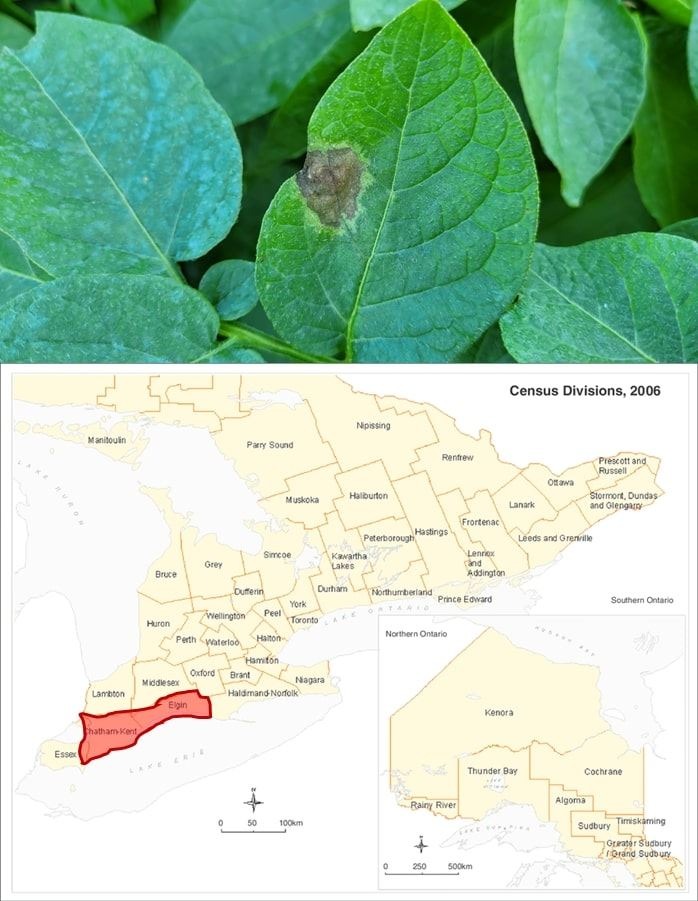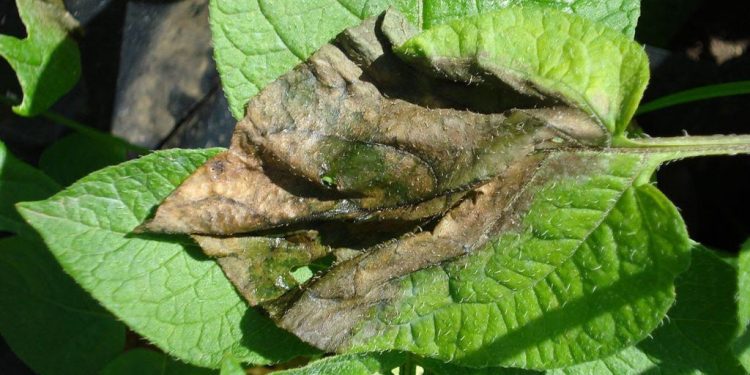Understanding the US-23 Strain and Its Impact on Agriculture in Elgin and Kent Counties
Late blight, a severe and fast-spreading disease, has been confirmed in potatoes and field tomatoes in Southwestern Ontario, specifically in Elgin and Kent Counties. This development has raised concerns among farmers, agronomists, and agricultural professionals regarding the potential impact on crop yields and quality.
Dr. Kutay Ozturk, an Extension potato pathologist with the University of Maine, provided a detailed summary of the situation. The late blight infection in potatoes has been identified as the US-23 strain. This particular strain is known for its high aggressiveness on tomatoes, affecting both foliage and fruit, as well as potato tubers. Interestingly, while it poses a significant threat to potato tubers, its impact on potato foliage is relatively less severe.
One of the distinguishing characteristics of the US-23 strain is its prolific production of sporangia on tomatoes. This makes it easily dispersible by wind, potentially spreading the infection over a large area in a short amount of time. For farmers in Elgin and Kent Counties, this means vigilant monitoring and proactive measures are essential to manage and mitigate the spread of late blight.
Dr. Jaime Willbur of the Michigan State University Extension also shared this critical information with the Michigan Potato Industry Commission (MPIC). The collaboration among agricultural experts and institutions underscores the importance of shared knowledge and coordinated efforts in combating this pervasive disease.
For those dealing with late blight in their crops, it is crucial to stay informed about the latest developments and recommended practices. Dr. Willbur is available to answer questions and provide guidance. She can be reached via email at willbur1@msu.edu.
In conclusion, the confirmation of late blight in Southwestern Ontario is a stark reminder of the challenges faced in modern agriculture. By understanding the specific threats posed by the US-23 strain and implementing effective management strategies, farmers and agricultural professionals can work together to protect their crops and ensure a stable food supply.








